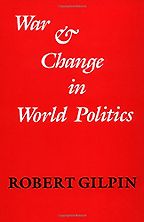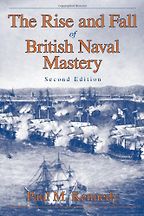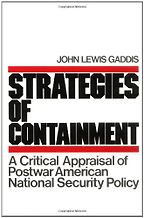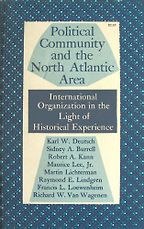Tell me about your first book, War and Change by Robert Gilpin.
War and Change was for me the first book which provided a compelling explanation of the rise and fall of great powers over time. There are a lot of books that address this issue and for me Gilpin’s book offers the most straightforward and persuasive in the theory of what it is that causes powers that are at the top of the pecking order to lose, over time, their advantages and eventually be eclipsed by rising challengers.
It is one of the most pervasive patterns in history and one of the patterns that causes the most war in history. In that sense it is a book which is foundational for the study of international diplomacy and conflict.
And what does Gilpin say are the causes of the fall of these great nations?
The main theory that he offers is that modes of innovation over time move from the core to the periphery of the international system. The periphery borrows the best technology from the core and gradually it is able to surpass the core by generating better economic growth, better productivity. The economic growth ultimately leads to military power. And so his theory contrasts with, for example, the work of Paul Kennedy. In his book The Rise and Fall of the Great Powers Kennedy argues that great powers fall because they spend too much on defence. However, I think that empirically Gilpin offers a better explanation of this pattern of rise and fall over time than does Kennedy.
What are some historical examples for examining these theories?
If you look at cases where countries sustain high levels of defence spending, there you do see that such expenditure cuts into economic growth – Japan in the 1930s and Nazi Germany. Israel today spends upwards of ten per cent. You have to get into the double digits to have defence spending cut into your economic performance. But, in general, a country like the United States or Great Britain at its peak wasn’t spending enough to really dampen its performance. Rather what happened is that over time the US overtook Britain due to America’s secular rise. Now it is Asia that is borrowing the best technology and emerging as the new node of innovation and production. One would expect that over the course of this century China would gradually catch up with the United States.
Your next book is Paul Kennedy’s The Rise and Fall of British Naval Mastery.
Yes, this is a more traditional book of diplomatic and naval history than the other Kennedy book I mentioned, The Rise and Fall of the Great Powers. It charts the rise of Great Britain as a major power – actually, in the early days it was England because it wasn’t called Great Britain until later. He looks at how, when and why this great power was able to essentially rule the world in the 19th century – how it was able to extend its reach on a global basis, attain mastery of the seas, and preserve a stable balance of power in Europe that enabled it to concentrate on the imperial periphery.
And this was all tied up with its economic growth?
Yes, very much so. Britain first rose economically when it became the workshop of the world and industrialised, and that growth gave it the potential to build a high seas fleet second to none. In fact, Britain was so superior economically that it adopted the Two Power Standard to set its fleet strength: the Royal Navy would remain as powerful as the next two most powerful fleets combined. And that is a level of superiority that is quite impressive especially at a time when other great powers were rising – as they were in the 19th century.
I think that the book does a superb job of looking at the relationships between economic power and military power and mapping out in strategic terms how Britain went about translating its economic resources and its naval superiority into a level of global hegemony which is very rare in history.
What about the demise? How does Kennedy tackle that?
He focuses on a combination of two things – one is the secular rise of other powers. By the end of the 19th century the United States is turning on as a great power. Germany after its unification in 1871 is starting to become a major industrial power, generating steel and other war-making materials at a rate that soon catches up with the British. Japan is also industrialising and coming on line as a major power.
And then, secondly, there is focus in the book on the sources of relative economic decline and its impact on strategy within the UK itself. One of the most interesting periods in the history of British grand strategy is the 1930s, when Britain’s sense of economic vulnerability delayed its rearmament and compelled the cabinet to avoid a continental commitment. In 1938 Chamberlain saw himself as having no choice but to appease Hitler because Britain did not have the capability to do otherwise. Economic constraints help explain the failure of Britain to balance against Nazi Germany.
Your third book is Strategies of Containment by John Gaddis.
I see this book as in some ways the US companion to Kennedy’s Rise and Fall of British Naval Mastery. I think it is the best synthetic treatment of American grand strategy during the Cold War. Gaddis doesn’t, as Kennedy does, deal with US strategy from soup to nuts. He really starts the book with the end of World War Two and the rise of American efforts to contain the Soviet Union.
Gaddis does a very good job of telling the story and he packages it in a conceptual way that I think has shaped public debate about American strategy ever since.
For me the lasting legacy of the book is really the treatment of the 40s and the 50s and the 60s where he delineates between two very different versions. One version was the brainchild of George Kennan and the other was the brainchild of Paul Nitze. Gaddis uses these two figures to paint a very interesting picture of the contending paradigms that inform strategy.
You have gone for a change of tack with your next choice, Karl Deutsch’s Political Community in the North Atlantic Area.
Yes, I see the final two books on my list, Karl Deutsch’s Political Community in the North Atlantic Area and John Ikenberry’s After Victory, in some ways as a conceptual antidote to the first three books. The first three books are all about power, about the projection of power, about conflict and the tensions and the geo-political rivalries that emerge among great powers as they contend for primacy.
I am someone who believes that the default position in international politics is one of rivalry; war has been the norm through history. But I am also someone who believes that we can do better. I think that the international system can be tamed and that we can find ways of escaping rivalry.
I think the Deutsch and Ikenberry books have been the most influential in my own thinking about how to tame the international system. What kinds of policy instruments and what kinds of concepts can we gravitate towards to escape from the pattern of the rise and fall of great powers and hegemonic war.
Karl Deutsch’s book was one of the first to theorise about how communities emerge in the world in which war has become unthinkable. He wrote in the 1950s at the beginning of what we call today the Atlantic Alliance and the Euro-Atlantic community – examining how it is that the Atlantic democracies came to be not just allies but members of a political community in which war has been de-legitimated as a tool of statecraft.
The chances of war between the United States and the UK today are very slim to put it mildly and Deutsch tried to figure out how that comes about. He focuses largely on integration, interaction, and the formation of a sense of ‘we-ness’ among nations.
Your last book is After Victory by John Ikenberry.
This book studies post-war settlements such as the Congress of Vienna after the Napoleonic Wars in 1815, the Versailles Treaty at the close of World War I, and the order that emerged at the close of World War II. Ikenberry attempts to theorise about order-building in the international system, how bargains, treaties, and other kinds of compacts can tame geo-political rivalry.
These two books were important in how I came to write my most recent book, How Enemies Become Friends. This explores when and how bitter rivals are able to find their way to peace. I examine the magical moments in history in which war is eliminated between rivals, in which their relations are demilitarised, in which the prospect of conflict is near zero. And I think these last two books gave me an arsenal of ideas to go after these questions.
So how do you think that countries manage to do that?
I think that one of the most important findings of my book is that rivalries come to an end and are replaced by friendship through diplomacy not through coercion. There was a big debate between Barack Obama and John McCain during the US presidential election about whether you should talk to adversaries like Iran.
Looking at 20 cases in my book I find that the answer is yes, unequivocally, the best way to get to peace without war is through negotiation. One of the key concepts in the book is that the practice of strategic restraint is a central ingredient of making peace: powers need to accommodate each other in order to step away from rivalry. They need to find ways of making concessions to each other in a way that sends signals of benign intent. After a period of trading concessions and building up a certain level of mutual understanding, the process then becomes more sociological.
Then the societies in question start to interact with each other – and eventually the political discourse changes. For example, Britain and the United States were rivals for well over a century. They started down the path of rapprochement in 1896 and by 1902-1903 leaders on both sides were talking about war between the two countries as being like a Civil War or war between brothers. In less than a decade Anglo-American rivalry was tamed – and the practices of animosity were replaced by practices of kinship.
July 6, 2010. Updated: May 6, 2022
Five Books aims to keep its book recommendations and interviews up to date. If you are the interviewee and would like to update your choice of books (or even just what you say about them) please email us at [email protected]
Five Books interviews are expensive to produce. If you've enjoyed this interview, please support us by donating a small amount.










